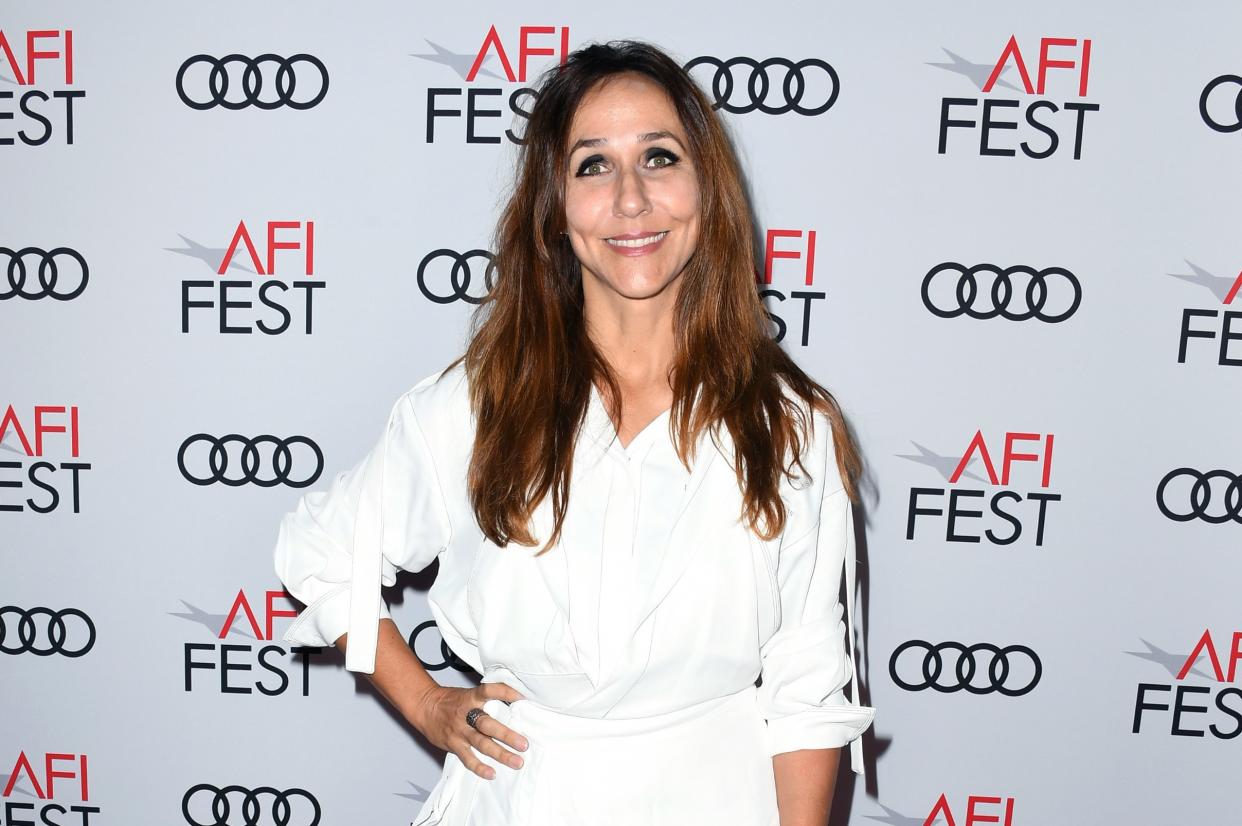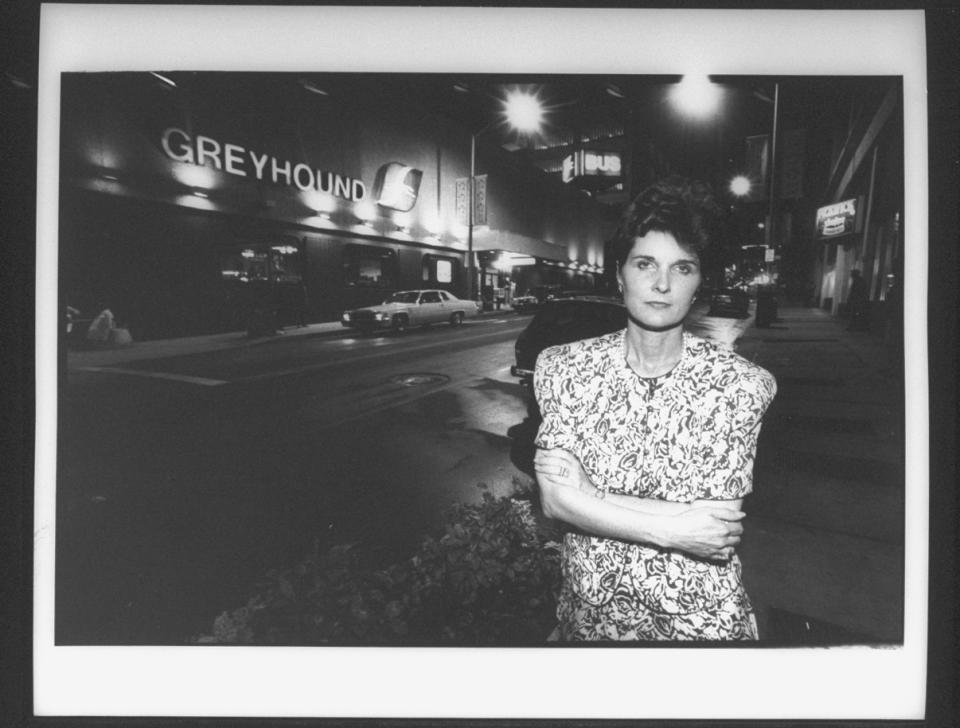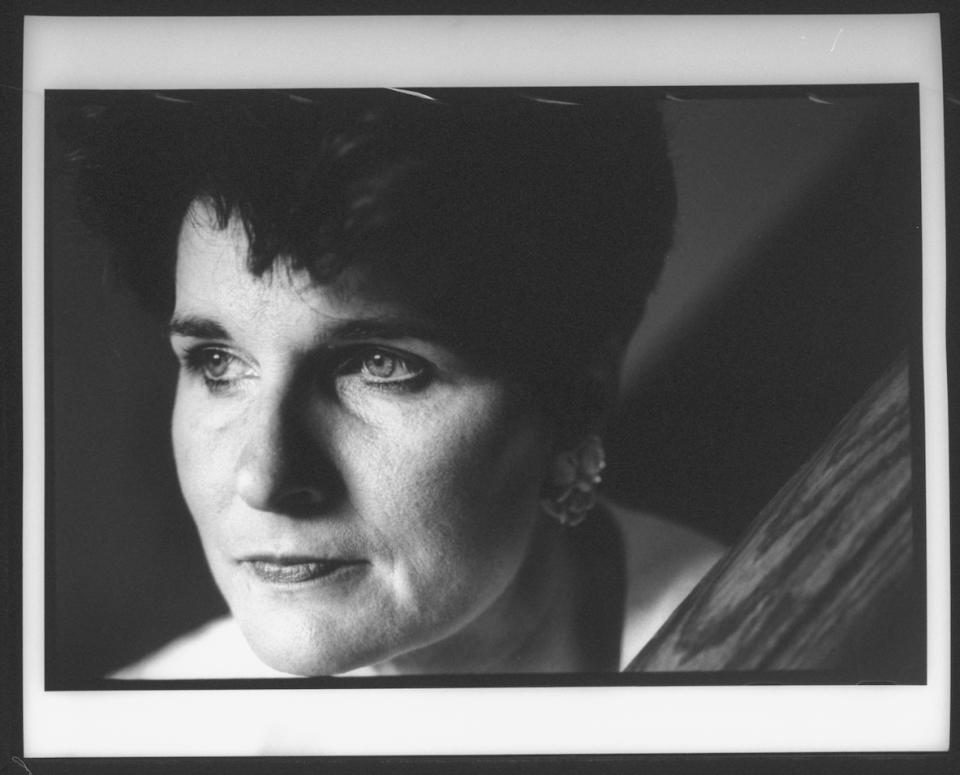Why Gabriela Cowperthwaite’s ‘Children of the Underground’ Holds Deeper Relevance Post-Depp v. Heard

- Oops!Something went wrong.Please try again later.
- Oops!Something went wrong.Please try again later.
- Oops!Something went wrong.Please try again later.
Director Gabriela Cowperthwaite is no stranger to criticism — she made her mark with the 2013 documentary “Blackfish” about Sea World’s treatment of Orca whales, sparking off a firestorm of law changes and criticisms of the theme park. Her new documentary series, FX’s “Children of the Underground,” focuses on controversial children’s rights advocate Faye Yager and her network that aided in helping non-custodial parents flee the state with their children. Many of the parents claimed their children were being sexually abused by ex-spouses.
The series has already drawn backlash from those who perceive the documentary to be biased. It’s something that Cowperthwaite finds ironic. “What’s interesting is they haven’t seen it yet!” Cowperthwaite told IndieWire last week via Zoom. It’s indicative of a society that still has trouble dealing with imperfection, which is at the heart of Cowperthwaite’s series.
More from IndieWire
Cowperthwaite went on to talk about why FX’s desire to revel in the messiness of her subject made it the perfect place to air the docuseries, the comparisons to the recent Johnny Depp/Amber Heard trial, and how she’s prepping for those pesky internet trolls to pop up.
The interview has been condensed and edited for clarity, as well as reorganized for conversational flow.
IndieWire: “Blackfish” started tons of conversation. No doubt this will as well. What drew you to Faye’s story?
Gabriela Cowperthwaite: I keep trying to figure out what are the similarities? I was captivated by the story and there is a vein in me when there’s a system that’s firmly in place, that declares it’s taking care of our most vulnerable, children or animals, and it’s so entrenched. You’re like, “Okay, that’s good. That whole part of our broken society is good.” And then you find out that it’s actually doing the opposite in many cases, not protecting the people that it’s [suppose to]. You just get a burning feeling inside you that you want to blow the doors open, you want to shine a light on it. I did feel that here.
I was also completely captivated by the idea that a group of women created a[n] alternative universe where this one was falling short. They created this underground to protect children and it started out as a whisper campaign and more people became galvanized by the movement and joined on, and became safe houses, or g[ave] donations. This children’s underground has been around for decades, and it’s been hiding in plain sight. I think [that] stirred me. And I was captivated by the characters, and how feisty and vigilante-ish they were in a time when that was so frowned upon by a male establishment, and a lot of it happening in the South. I needed to know more and I like, “Okay, this is a story I have to tell.”

Taro Yamasaki/FX
How do you look at this documentary coming out alongside controversial trials like the one involving Johnny Depp and Amber Heard?
The context of today’s stories and what we’re going through today, it did seem perfect in that way. It did seem like it would find welcome in a way because of our comfort with people, not just women but people in general telling stories of the abuse they suffered. This is a good time for this. I felt like there [is] more thought and context in the cases recently where there [are] imperfect victims.
What ends up coming forward for me is if there aren’t systems in place with enough agility to be able to take on things as complicated as child sexual abuse or incest, then you will have imperfect solutions and you’re going to have a bevy of people doing whatever they can and feeling their way through, trying to protect the people they love. If we don’t have those systems in place—if we don’t even know how to have those conversations between women and men—you’re gonna have imperfect solutions that are hopefully temporary but 100 percent necessary.
Everything we ever do in this space, we’re just improvising to be able to survive our pain. I think we can expect more like this as a result. If everybody’s talking about Roe v. Wade and that was also big, what is this going to mean for family court? Well, if family court is ill-equipped, as it stands, to be able to adjudicate child sexual abuse and incest can you imagine the onslaught of new cases that family court is going to have to take? And [the] volume of cases it’s going to bear? You’re gonna get more problems.
Do you think Faye is a hero?
I think she is. It would have been really easy to do a five-part heroic piece and sing her praises as a hero but these things are so complicated in the layers and the people who are falsely accused, which that’s a minority of the cases but those are very real cases. She’s a flawed, complicated heroine. She’s a human being who improvised as best she could as a woman with the world against her. I first began the documentary series thinking, “This was going to be a hero story.” [Then] I realized I was telling a story and that she was a human being.
Why did you think FX was the network best suited for this doc series?

Taro Yamasaki/FX
I love FX because they are not risk averse. They don’t pull punches. They reveal all their cards and just go for it. I love a network that takes risks and isn’t worried too much about the fallout. I think they were perfect and interested in the messiness, they celebrated the chaos, a little bit, of this particular story.
“Blackfish” left such an impact and really came to define documentary when it came out in 2013 yet you transitioned to narrative filmmaking. Did you feel pressure to top yourself or stay in documentary?
There’s some stories that should not be documentaries and some stories that should not be narrative films, real life stories that should not be told in a narrative way. It’s an instinctive feel for what content is there, what’s the story we’re trying to tell. The feature world sort of came calling after “Blackfish” and I never really knew that was a door that could ever be opened to me. I didn’t grow up knowing any directors. I didn’t have any family in the business. I grew up in Denver; I didn’t know a single director. I thought all movies were directed by five people, you know?
An opportunity presented itself and it was so exciting to me. I want to always do both. I can never not do documentary. There’s something in my DNA. A narrative feature is like watching a sunset. There’s a script, you know what’s going to happen, and it can be really beautiful and stirring. Documentary, in some ways, feels more like seeing a shooting star where you’re like, “No way!” I just happen to be the right place at the right time.
One thing I will say about that, after that experience because it was so much bigger than me, I wasn’t sure if anybody would even watch it. I felt like, at that time, people weren’t even watching documentaries that much. It did feel like a roller coaster ride.
Considering the social media response to the Depp v. Heard trial are you and those associated with “Children of the Underground” prepped for the social media trolls?
This is an insidious world. There are some who have been falsely accused and we show that in the series. But a majority of the cases are real and some alleged abusers are powerful people who will fight you with everything they have. When you see this it suddenly makes sense why Faye quit the Underground. We’re poking the dragon in a lot of ways. This isn’t just family court that we’re deconstructing. It’s real lives. We take on the detractors and give them a seat at the table. We listen to both sides. It’s possibly going to be a landmine. We’re all prepared for that. We’re all prepared for what comes.
“Children of the Underground” is available to stream on Hulu.
Best of IndieWire
‘The Lord of the Rings’: Everything You Need to Know About Amazon’s Big Money Adaptation
Charlie Cox and Vincent D'Onofrio Set to Reprise 'Daredevil' Roles for Marvel Series 'Echo'
'The Last of Us': Everything You Need to Know About HBO's Adaptation
Sign up for Indiewire's Newsletter. For the latest news, follow us on Facebook, Twitter, and Instagram.

